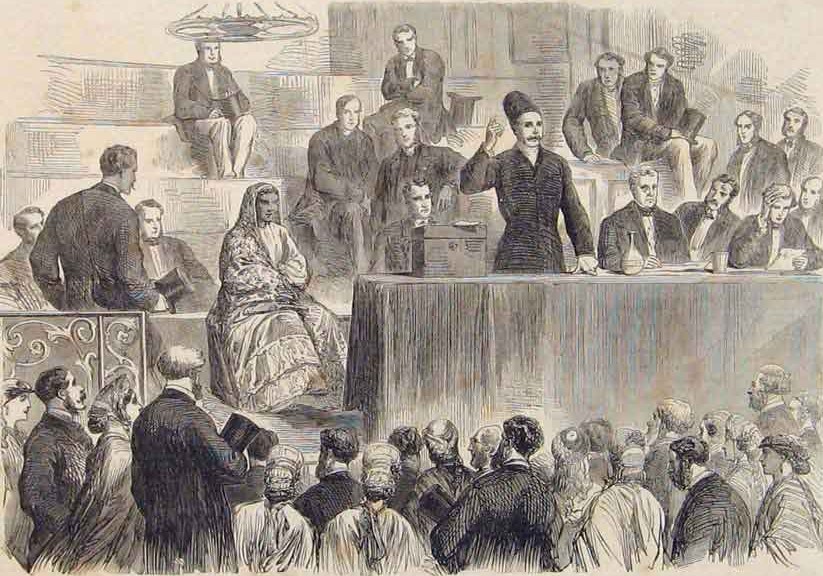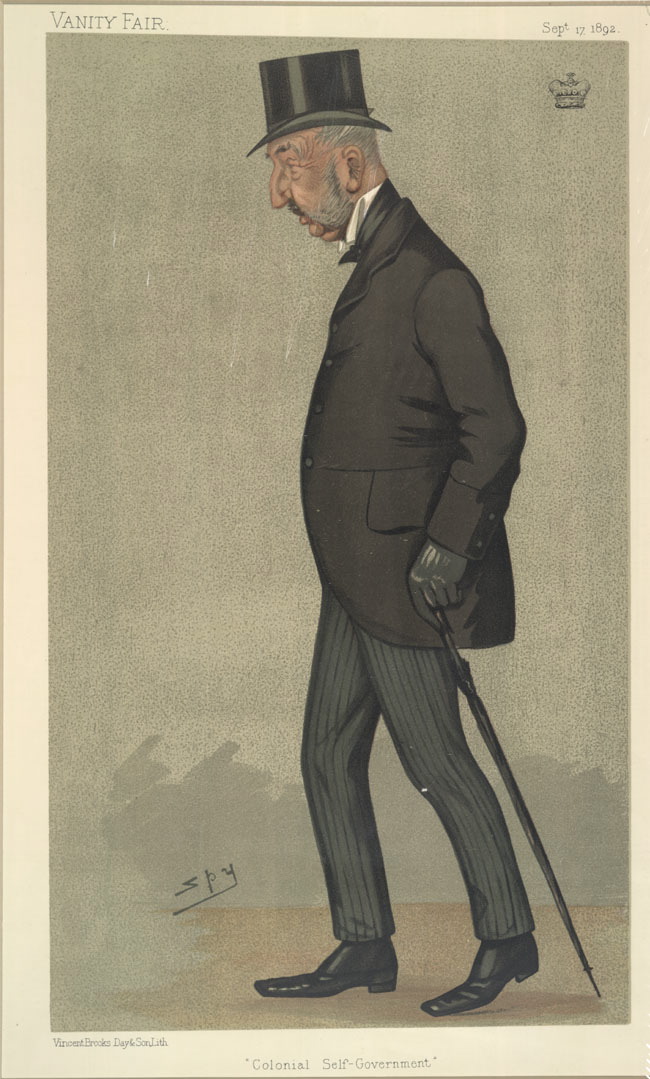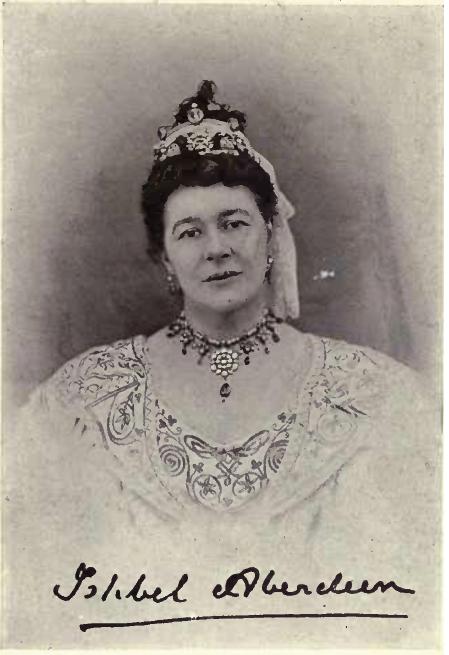|
National Association For The Promotion Of Social Science
The National Association for the Promotion of Social Science (NAPSS), often known as the Social Science Association, was a British reformist group founded in 1857 by Lord Brougham. It pursued issues in public health, industrial relations, penal reform, and female education. It was dissolved in 1886. Background The efforts of George Hastings brought together three groups of the 1850s to form the NAPSS: the Society for Promoting the Amendment of the Law, the National Reformatory Union, and the Society for Promoting the Employment of Women (the Langham Place Group). It took as model the British Association for the Advancement of Science, holding an itinerant annual meeting, which provided a forum for social reformers. The objective of the Association was defined as "to coordinate the efforts of the experts and the politicians". One factor in the eventual decline of the NSPSS was that the objectives of medical reformers changed. Legislation and the efforts of central government to im ... [...More Info...] [...Related Items...] OR: [Wikipedia] [Google] [Baidu] |
Social Science Congress 1865 Maneckji Cursetji
Social organisms, including human(s), live collectively in interacting populations. This interaction is considered social whether they are aware of it or not, and whether the exchange is voluntary or not. Etymology The word "social" derives from the Latin word ''socii'' ("allies"). It is particularly derived from the Italian ''Socii'' states, historical allies of the Roman Republic (although they rebelled against Rome in the Social War of 91–87 BC). Social theorists In the view of Karl MarxMorrison, Ken. ''Marx, Durkheim, Weber. Formations of modern social thought'', human beings are intrinsically, necessarily and by definition social beings who, beyond being "gregarious creatures", cannot survive and meet their needs other than through social co-operation and association. Their social characteristics are therefore to a large extent an objectively given fact, stamped on them from birth and affirmed by socialization processes; and, according to Marx, in producing and reproducin ... [...More Info...] [...Related Items...] OR: [Wikipedia] [Google] [Baidu] |
Algernon Percy, 6th Duke Of Northumberland
Algernon George Percy, 6th Duke of Northumberland, (20 May 1810 – 2 January 1899), styled Lord Lovaine between 1830 and 1865 and Earl Percy between 1865 and 1867, was a British Conservative politician. He held office under the Earl of Derby as Paymaster-General and Vice-President of the Board of Trade in 1859 and under Benjamin Disraeli as Lord Privy Seal between 1878 and 1880. Background Northumberland was the eldest son of George Percy, Lord Lovaine, eldest son of Algernon Percy, 1st Earl of Beverley, a younger son of Hugh Percy, 1st Duke of Northumberland. From his father's succession as second Earl of Beverley in 1830, Percy was styled Lord Lovaine. In 1865, Lord Beverley inherited the dukedom of Northumberland from his first cousin, Algernon Percy, 4th Duke of Northumberland, and thenceforth Lovaine was styled Earl Percy. His mother was Louisa, daughter of the Hon. James Stuart-Wortley-Mackenzie, second son of Prime Minister John Stuart, 3rd Earl of Bute. Lord Josceline ... [...More Info...] [...Related Items...] OR: [Wikipedia] [Google] [Baidu] |
Sir Richard Temple
Sir Richard Temple, 1st Baronet (8 March 1826 – 15 March 1902) was a British colonial administrator in 19th-century India, who served as Governor of Bombay from 1877 to 1880. Early life Temple was the son of Richard Temple (1800–1874) and his first wife Louisa Anne Rivett-Carnac (d. 1837), a daughter of James Rivett-Carnac. His paternal ancestor, William Dicken of Sheinton, Shropshire, married in the middle of the 18th century the daughter and co-heiress of Sir William Temple, 5th Baronet (1694–1760), of the Temple baronets of Stowe. Their son assumed the surname Temple in 1796, and inherited the Temple manor-house and estate of The Nash, near Kempsey in Worcestershire. Richard Temple (born 1826) inherited the estate on his father's death in 1874. Career After being educated at Rugby and the East India Company College at Haileybury, Temple joined the Bengal Civil Service in 1846. His hard work and literary skill were soon recognised; he was private secretary for som ... [...More Info...] [...Related Items...] OR: [Wikipedia] [Google] [Baidu] |
George Hastings (East Worcestershire MP)
George Woodyatt Hastings (25 September 1825 – 21 October 1917) was an English Liberal politician who sat in the House of Commons from 1880 to 1892. Life Hastings was the only son of Sir Charles Hastings, M.D., D.C.L., founder of the British Medical Association, of Barnard's Green, Malvern, and his wife Hannah Woodyatt. He was a relation of Warren Hastings (1732–1818) Governor of Bengal from 1772. The family had owned the estate of Daylesford in Gloucestershire from the 12th century. Hastings was educated at Bromsgrove School and at Christ's College, Cambridge. In 1850, he was called to the bar at Middle Temple. He was secretary of the Law Amendment Society and Hon. secretary of the National Reformatory Union. From 1857 to 1868, he was General Secretary of the National Association for Promotion of Social Science, and was Chairman of their Council from 1868 to 1883. He was chairman of Worcester School Board from 1871 to 1883. He was a J.P. and vice-chairman of Quarter Sessi ... [...More Info...] [...Related Items...] OR: [Wikipedia] [Google] [Baidu] |
Thomas O'Hagan, 1st Baron O'Hagan
Thomas O'Hagan, 1st Baron O'Hagan, KP, PC (Ire), QC (29 May 18121 February 1885), was an Irish lawyer and judge. He served as Lord Chancellor of Ireland from 1868 to 1874 and again from 1880 to 1881. Background and education O'Hagan was born in Belfast, the son of Edward O'Hagan, a merchant, and his wife Mary Bell, daughter of Captain Thomas Bell. He was educated at Royal Belfast Academical Institution, being in his day the only Catholic in the school. In 1836 he was called to the Irish Bar. Career Between 1838 and 1841 O'Hagan was the editor of ''The Newry Examiner''. In 1840 he moved to Dublin, where he appeared for the repeal party in many political trials, becoming an Irish Queen's Counsel in 1849. His advocacy of a continuance of the Union with Great Britain, and his appointment as Solicitor-General for Ireland in 1860 and Attorney-General for Ireland in the following year, lost him the support of the Nationalist party, but he was returned to Parliament as Liberal Mem ... [...More Info...] [...Related Items...] OR: [Wikipedia] [Google] [Baidu] |
Donald Mackay, 11th Lord Reay
Donald James Mackay, 11th Lord Reay (22 December 1839 – 1 August 1921) (in the Netherlands: Donald Jacob, Baron Mackay, Lord of Ophemert and Zennewijnen) was a Dutch-born British administrator and Liberal politician. Background Mackay was born ''Donald Jacob baron Mackay'' in The Hague, Netherlands, the son of Aeneas Mackay, 10th Lord Reay, a Dutch member of Parliament, and jonkvrouw Maria Catharina Anna Jacoba Fagel, daughter of mr. Jacob baron Fagel and jkvr. Maria Boreel, relative of the Boreel baronets.''Nederland's Adelsboek'' 88 (1999), p. 28. Political career Lord Reay succeeded his father in 1876 and was naturalised as a British subject in 1877. He was created Baron Reay, of Durness in the County of Sutherland, in the Peerage of the United Kingdom, in 1881. In 1885 he was appointed Governor of Bombay, a post he held until 1890. He was appointed a Knight Grand Commander of the Most Eminent Order of the Indian Empire in 1887 and a Knight Grand Commander of the Most Exal ... [...More Info...] [...Related Items...] OR: [Wikipedia] [Google] [Baidu] |
James Fraser (bishop)
James Fraser (18 August 1818 – 22 October 1885) was a reforming Anglican bishop of Manchester, England. An able Church administrator and policy leader, he was active in developing the Church's approach to education and in practical politics and industrial relations. Though his views were ecumenical and he was respected within a wide variety of religions, against his own instincts he allowed himself to become involved in some unpleasant litigation under the Public Worship Regulation Act 1874. Early life Born in Prestbury, Gloucestershire, Fraser's father was an unsuccessful merchant who left his wife and seven children in penury when he died in 1832. Fraser was brought up by his grandfather in Bilston, Staffordshire, then at various schools, including Bridgnorth Grammar School. He finished his education at Shrewsbury School and then Lincoln College, Oxford, where he graduated in 1839. His limited funds and the continual competition for bursaries entailed a scholastic life onl ... [...More Info...] [...Related Items...] OR: [Wikipedia] [Google] [Baidu] |
Charles Bowyer Adderley, 1st Baron Norton
Charles Bowyer Adderley, 1st Baron Norton (2 August 181428 March 1905) was a British Conservative politician. Background and education Charles Bowyer Adderley was the eldest son of Charles Clement Adderley (d. 1818), offspring of an old Staffordshire family, and his wife, daughter of Sir Edmund Cradock-Hartopp, 1st Baronet. Adderley inherited Hams Hall, Warwickshire, and the valuable estates of his great-uncle, Charles Bowyer Adderley, in 1826. He was educated at Christ Church, Oxford, where he graduated with a Bachelor of Arts in 1838. Political career In 1841, Adderley entered the House of Commons as Member of Parliament for North Staffordshire, retaining his seat until 1878, when he was created Baron Norton. Adderley's ministerial career began in 1858, when he was appointed President of the Board of Health and Vice-president of the Committee of the Council on Education in Lord Derby's short ministry. Again under Lord Derby, he was Under-Secretary of State for the Coloni ... [...More Info...] [...Related Items...] OR: [Wikipedia] [Google] [Baidu] |
John Hamilton-Gordon, 1st Marquess Of Aberdeen And Temair
John Campbell Hamilton-Gordon, 1st Marquess of Aberdeen and Temair, (3 August 1847 – 7 March 1934), known as The 7th Earl of Aberdeen from 1870 to 1916, was a British politician. Born in Edinburgh, Lord Aberdeen held office in several countries, serving twice as Lord Lieutenant of Ireland (1886; 1905–1915) and serving from 1893 to 1898 as Governor General of Canada.Chambers Biographical Dictionary, , page 4 Early and personal life Lord Aberdeen was born in Edinburgh to George Hamilton-Gordon, 5th Earl of Aberdeen, and his wife, Mary Baillie, daughter of George Baillie and sister to The 10th Earl of Haddington. He studied at the University of St Andrews and University College, Oxford. He succeeded as The 7th Earl of Aberdeen following the death of his eldest brother, George, 6th Earl of Aberdeen, in January 1870. In 1877 he married Ishbel Maria Marjoribanks (1857–1939), daughter to Sir Dudley Marjoribanks, 1st Bt., M.P. (later created, in 1880, The 1st Baron Twe ... [...More Info...] [...Related Items...] OR: [Wikipedia] [Google] [Baidu] |
Charles Gordon, 11th Marquess Of Huntly
Charles Gordon, 11th Marquess of Huntly, PC, DL, JP (5 March 1847 – 20 February 1937), styled Lord Strathavon until 1853 and Earl of Aboyne between 1853 and 1863, was a Scottish Liberal politician. He served under William Ewart Gladstone, he was appointed Captain of the Honourable Corps of Gentlemen-at-Arms between January and June 1881. Background and education Huntly was the son of Charles Gordon, 10th Marquess of Huntly, by his second wife Maria Antoinette, daughter of Reverend Peter William Pegus, and succeeded to the marquessate in 1863 at the age of sixteen. He was educated at Eton and Trinity College, Cambridge. Political career In 1870 Huntly was appointed a Lord-in-waiting (government whip in the House of Lords) in the first Liberal administration of William Ewart Gladstone, a post he held until 1873, and served from January to June 1881 as Captain of the Honourable Corps of Gentlemen-at-Arms The Captain of the Honourable Corps of Gentlemen-at-Arms is a post ... [...More Info...] [...Related Items...] OR: [Wikipedia] [Google] [Baidu] |
Henry Austin Bruce, 1st Baron Aberdare
Henry Austin Bruce, 1st Baron Aberdare, (16 April 1815 – 25 February 1895), was a British Liberal Party politician, who served in government most notably as Home Secretary (1868–1873) and as Lord President of the Council. Background and education Henry Bruce was born at Duffryn, Aberdare, Glamorganshire, the son of John Bruce, a Glamorganshire landowner, and his first wife Sarah, daughter of Reverend Hugh Williams Austin. John Bruce's original family name was Knight, but on coming of age in 1805 he assumed the name of Bruce: his mother, through whom he inherited the Duffryn estate, was the daughter of William Bruce, high sheriff of Glamorganshire. Henry was educated from the age of twelve at the Bishop Gore School, Swansea ( Swansea Grammar School). In 1837 he was called to the bar from Lincoln's Inn. Shortly after he had begun to practice, the discovery of coal beneath the Duffryn and other Aberdare Valley estates brought his family great wealth. From 1847 to 1854 Bruce w ... [...More Info...] [...Related Items...] OR: [Wikipedia] [Google] [Baidu] |
Lord Rosebery
Archibald Philip Primrose, 5th Earl of Rosebery, 1st Earl of Midlothian, (7 May 1847 – 21 May 1929) was a British Liberal Party politician who served as Prime Minister of the United Kingdom from March 1894 to June 1895. Between the death of his father, in 1851, and the death of his grandfather, the 4th Earl of Rosebery, in 1868, he was known by the courtesy title of Lord Dalmeny. Rosebery first came to national attention in 1879 by sponsoring the successful Midlothian campaign of William Ewart Gladstone. He briefly was in charge of Scottish affairs. His most successful performance in office came as chairman of the London County Council in 1889. He entered the cabinet in 1885 and served twice as foreign minister, paying special attention to French and German affairs. He succeeded Gladstone as prime minister and leader of the Liberal Party in 1894; the Liberals lost the 1895 election. He resigned the party leadership in 1896 and never again held political office. Rosebery w ... [...More Info...] [...Related Items...] OR: [Wikipedia] [Google] [Baidu] |



%2C_née_Alice_Mary_Towneley.jpg)





